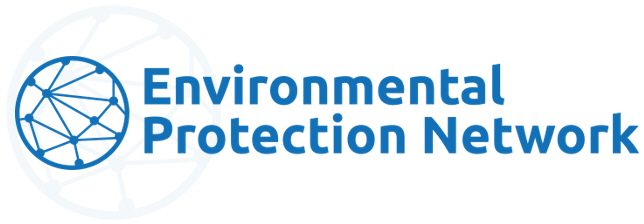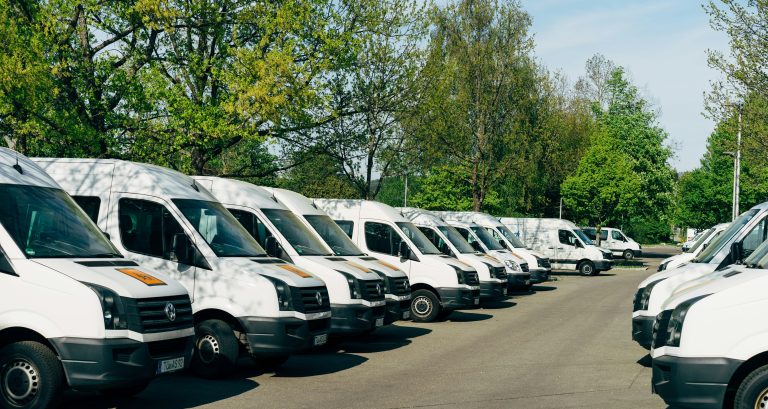Please share this information widely! And please sign up to receive these updates in your inbox every 2 weeks or so.
Below you will find resources and information on:
- EPA’s Clean Heavy-Duty Vehicles Grant Program
- EPA’s Promoting Readiness and Enhancing Proficiency to Advance Reporting and Data (PREPARED) Cooperative Agreement
- EPA’s Community Change Grants
- Elective Pay Resources
- Other Resources and Webinars
- Updates on Our Work
EPA’s Clean Heavy-Duty Vehicles Grant Program
1) Funding Available: Clean Heavy-Duty Vehicles Grant
The Clean Heavy-Duty Vehicles Grant Program has $932 million to fund the replacement of non-zero-emission heavy-duty trucks and buses with zero-emission heavy-duty vehicles. At least $400 million will be used to fund projects in communities in air quality nonattainment areas. To advance environmental justice, this program is seeking to prioritize projects that take place in communities overburdened by air pollution. Additionally, the EPA will evaluate applications on their benefits towards disadvantaged communities experiencing poor air quality along with the quality and extent of community engagement efforts.
Eligible applicants to the Clean Heavy-Duty Vehicles Grant Program include:
- States, including U.S. territories;
- Municipalities, including public school districts;
- Indian Tribes; and
- Nonprofit school transportation associations.
Applications are due to Grants.gov by July 25, 2024, at 11:59pm ET. Potential applicants without a Federal Grants account are highly encouraged to initiate the Federal Grants registration process well ahead of the deadline for funding as the registration process can take over a month. Please check out the Clean-Heavy Duty Vehicles Grant Program webpage for program details and links, including a public Q&A document and previously recorded webinars, and the CHDV Applicant Resources webpage additional resources.
EPA’s Promoting Readiness and Enhancing Proficiency to Advance Reporting and Data (PREPARED) Cooperative Agreements
2) Funding for Technical Assistance for EPA Grant Recipients
EPA’s Promoting Readiness and Enhancing Proficiency to Advance Reporting and Data (PREPARED) Cooperative Agreement will provide technical assistance to EPA grant recipients representing small, underserved, and/or tribal communities to enhance their capacity to meet data and reporting requirements and improve their ability to generate the information necessary to evaluate and improve grant outcomes. EPA intends to award up to $4 million over 3 years to as many as 8 recipients. The deadline to apply is July 29. Here is the application notice.
Data, reporting, and evidence-building are vitally important responsibilities for EPA grant programs. However, many EPA grant recipients face capacity challenges in engaging in these activities. Many small, underserved, and/or tribal communities that are eligible for EPA grants sometimes choose to pass on funding opportunities as a result. With this cooperative agreement, EPA seeks to fund technical assistance providers with program evaluation expertise to equip communities with strategies, tools, and training that enhance their capacity for data, reporting, and evidence-building.
To view active projects, recorded webinars and office hours, and FAQs, visit EPA’s website.
EPA’s Community Change Grants (CCG)
3) As soon as you completely meet the NOFO requirements, please submit!
EPA is reviewing CCG grants on a rolling basis, with the final deadline for submission (if funds remain) of November 21, 2024. However, EPA encourages applicants to submit applications as soon as they completely meet the NOFO requirements to ensure adequate time to resubmit it if needed per the NOFO instructions.
4) New CCG Resources by EnDyna
EPA contractor EnDyna recently posted a number of helpful Community Change Grants resources on their website, including:
- TA Workbooks – Workbooks designed to guide you through the step-by-step Track 1 and Track 2 application process.
- Community Change Technical Assistance (CCTA) Resource Library – A library of resources including guides, templates, and best practices for grant writing and compliance.
- CCTA Knowledge Portal and Fact Sheets – A comprehensive portal with detailed fact sheets on various topics related to the CCTA program.
- CCTA FAQ – A resource for frequently asked questions.
- De Minimis Rate – EPA’s resource page on de minimis rates.
- Past Webinars – The “Preparing a Grant Budget” webinar can provide more helpful information.
- Upcoming Office Hours Sessions – A schedule of future office hours sessions where you can gain additional support and insights.
- EPA Course Modules – Access additional training on how to develop a budget.
You can send your Community Change Technical Assistance questions to EJ_TechAssist@epa.gov or call 1 (800) 540-8123. If you are already receiving TA, you can reach out to your Lead Technical Assistance Provider for additional support from a Subject Matter Expert. And if you aren’t already in the TA process, you can request Technical Assistance by filling out the form here.
5) EPN’s Community Change Grants Resources
Elective Pay Resources
6) IRS Office Hours: Pre-filing Registration for Elective Payment and Transfer of Clean Energy and CHIPS Credits Assistance
The IRS is offering office hours to help entities with the pre-filing registration process on the new IRA/CHIPS Pre-filing Registration Tool. Pre-filing registration is a required step for applicable entities and eligible taxpayers to take advantage of elective payment or transfer of credits available in the Inflation Reduction Act and CHIPS Act. Representatives from the IRS will be available to answer your pre-filing registration questions.
Registration is required and can be completed by clicking on any of the links below:
| July 17, 2024 | 1-2:30 p.m. EDT | Register |
| July 31, 2024 | 1-2:30 p.m. EDT | Register |
| August 14, 2024 | 1-2:30 p.m. EDT | Register |
| September 4, 2024 | 1-2:30 p.m. EDT | Register |
| September 18, 2024 | 1-2:30 p.m. EDT | Register |
| October 2, 2024 | 1-2:30 p.m. EDT | Register |
7) Lawyers for Good Government (L4GG) Clean Energy Tax Navigator
L4GG is launching a new tool on July 17 that will provide technical assistance to applicable entities who are building or have built clean energy projects and are looking to file for elective pay. The tool will provide guidance on the elective pay credits that are most used by tax exempt entities, including EV Purchases, EVSE, and ITC/PTC (wind/solar/geothermal) projects. Sign up to get support and receive updates, and you can register for the launch event on July 17, 2024 at 2pm ET / 11am PT here.
Other Resources and Webinars
8) Resource Rural’s Story Program
Do you have a story to tell about how you—or someone you know—worked to bring federal funding and resources to benefit your town, business, or farm? Resource Rural would love to work with you to ensure your story is told in your own voice and language. Resource Rural’s Story Program is a free communications resource with a team of freelance writers, photographers, and videographers who are ready to work with you! Learn more about how to collaborate with Resource Rural’s Story Program here.
9) Funding Opportunities for Renewable Energy Projects
On Wednesday, July 10, 1pm ET, Debra Perry, Program Director for Clean Energy at ICMA, and Chad Laurent, the Clean Energy Principal at Cadmus, will provide information on funding opportunities for renewable energy projects and how frontline communities can tap into them. Here is the zoom link.
This webinar is being organized by the Anthropocene Alliance (A2) and the Environmental Protection Network (EPN) who co-host monthly virtual discussions at 1pm eastern on the second Wednesday of every month. These webinars are focused on federal funding and other topics of interest for frontline and environmental justice communities nationally. To be added to the monthly forum calendar invites or to suggest topics for future discussions, email: Harriet@AnthropoceneAlliance.org.
Updates on Our Work
Please take a moment to check out EPN’s Bimonthly Newsletter: EPN In Action: May-June 2024
Staff Updates: We are thrilled to introduce two new staff members to our growing pro bono capacity-building technical assistance program! We recently welcomed a new National Grants Associate, Caitlin Bolger, and a new Region 1 Community Outreach Associate, Michelle Peedin. And to date, we’ve connected more than 200 EPN volunteers to over 1,000 communities and NGOs, and have helped communities access over $540 million in federal funding.
National Policy Updates:
- EPN submitted comments on EPA’s draft risk evaluation for tris(2-chloroethyl) phosphate (TCEP)
- EPN submitted comments on EPA’s draft risk evaluation for formaldehyde.
- EPN also submitted comments on Bayer CropScience LP’s application for a pesticide registration that would allow “over-the-top” use of dicamba on dicamba-resistant soybeans and cotton.
- EPN submitted comments on the ad hoc committee assembled by the National Academies of Sciences, Engineering, and Medicine (NASEM) to explore cumulative impact assessments and the proposed charge questions to be put before the ad hoc committee.
- EPN submitted comments on key issues in the Asbestos Part 2 draft risk evaluation under the Toxic Substances Control Act (TSCA).
- EPN submitted comments on the draft human health and ecological risk assessment for formaldehyde and paraformaldehyde.

